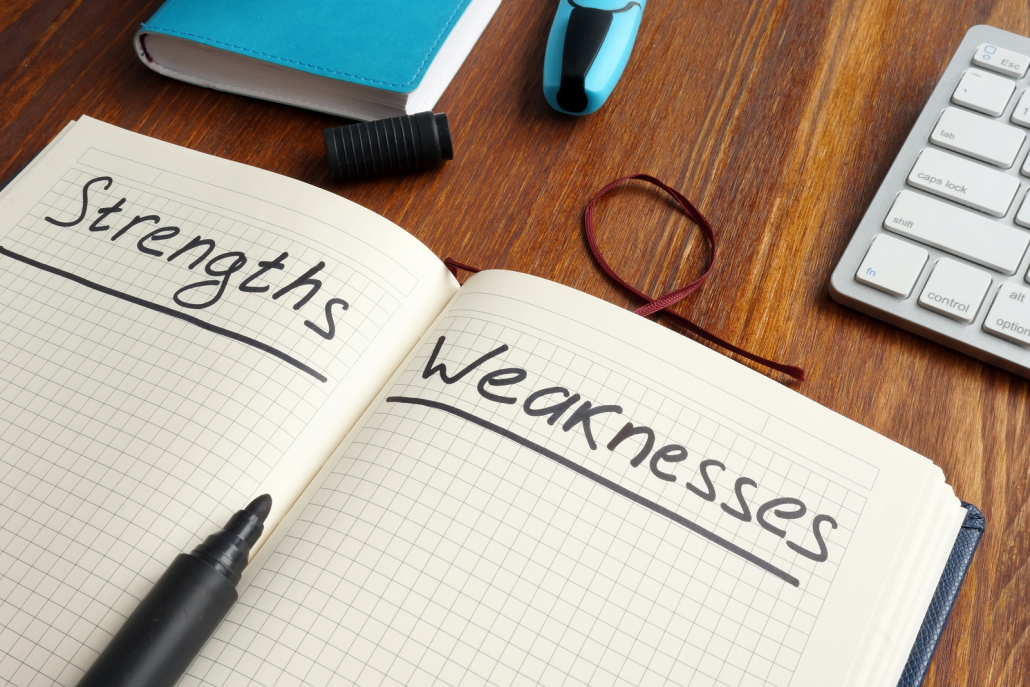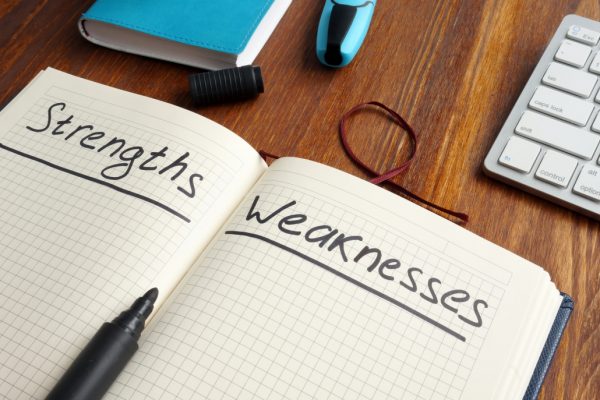Most people have lofty goals they seek to achieve during their lifetimes and most of these goals are what drives them. However, when it comes to achieving such ambitions, continual progress must be made on your part and that is why identifying your strengths and your weaknesses is not just an exercise to make you feel good (or bad) about yourself. It is a process that will allow you to understand how you can be most effective at what you do and where you will need to improve if you want to be successful.
Read more about Personal development
Here are steps on how to identify your strengths and weaknesses
Identify in Terms of Context
Firstly, forget drawing up a two-column table and listing your strengths on one side and weaknesses on the other without reference to a context because doing so will be completely pointless. So to identify our strengths and weaknesses, there is need to be a context you are referring to. For example, the listing is going to come in two forms, with one already having been decided. While examining your natural strengths, the context is clearly defined: you are looking at the values within yourselves that are either your strong points or where you fall short.
Your learned skills are going to be where you must decide upon the context. Are you thinking about your strengths in terms of your sport or maybe your profession? Once you have come up with the context, you can then think of the second thing to do.
Brainstorm
In this step, making a list is going to be the most helpful and when compiling your list, break it up into four sections. Two for your natural strengths and weaknesses and two for your learned strengths and weaknesses and then it is time to brainstorm. Go through the list of six values, think about each one, and come up with the ones you believe are your strengths and weaknesses.
Sign up for the Connect Nigeria daily newsletter
Then, do the same for the learned skills in whichever context you’ve decided.
Confer with Qualified and Trusted Sources
When you are asked to describe the strengths you see in your friends, it is a relatively easy task to do. So after you have come up with your list, you want to consult with someone you trust or you know is qualified to give detailed feedback and it can be a parent, a coach, a friend, or anyone who knows you well. Go over the lists you have compiled with them and see which areas they agree with and which areas they disagree with.
The reason why it is vital you choose someone you trust and that knows you well is to ensure the integrity of your list.
Test Yourself and Refine
As we move on to step four, you should have a good list of strengths and weaknesses put together with the help of a trusted source. Now it is time to test out your list, see if any adjustments need to be made and so, for your natural strengths put yourself in a position where they will have to shine. For example, if you decided that courage was one of your strong points, then go into a safe situation where you have to be courageous and that way, you can tell at the moment if the value is truly a strength or a weakness.
Register to attend the Connect Nigeria Business Mixer
With your learned skills, similarly, test them and mold this step to your lists digging deep into each one of your strengths and weaknesses. After doing this, refine your list and then you should have a solid idea of where your strengths and weaknesses lie.
In conclusion, identifying our strengths and weaknesses is an important activity to perform regularly. Understanding what areas of our personalities and our skill sets are strong points and which areas we fall short is a beneficial step towards success.
Once we do, we can build upon our strengths and improve our weaknesses to put us in the best position to achieve our goals.
Featured Image Source: Johnson Service Group
Got a suggestion? Contact us: [email protected]


